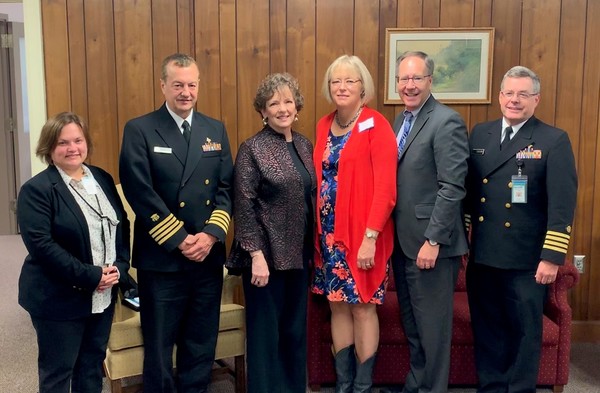
FRANKFORT, Ky. — The Kentucky Department for Public Health, in partnership with the U.S. Department of Health and Human Services’ (HHS) Health Resources and Services Administration (HRSA) and the Centers for Disease Control and Prevention (CDC), held a meeting this week to discuss HIV prevention, care and treatment in Kentucky.
Ending the HIV Epidemic: A Plan for America is an initiative to reduce new HIV infections in the U.S. to fewer than 3,000 per year by 2030. Reducing new infections to this level would mean HIV transmissions are rare and meet the definition of ending the epidemic.
Kentucky is among seven rural states to be included in the first phase of the nationwide action plan.
“We have the tools available to end the HIV epidemic,” said Laura Cheever, MD, ScM, associate administrator for the Health Resources and Service Administration’s HIV/AIDS Bureau.
“Landmark biomedical and scientific research advances have led to the development of many successful HIV treatment regimens, prevention strategies and improved care for people with HIV,” Cheever added. “This initiative will provide the hardest-hit communities with the additional expertise, technology and resources required to address the HIV epidemic locally.”
Ending the HIV Epidemic: A Plan for America will focus efforts in 48 counties, Washington, D.C., San Juan (Puerto Rico) and seven states with substantial rural HIV burden.
“Through a collaborative partnership with HRSA, the Department for Public Health will strengthen its capabilities to combat the spread of HIV in the Commonwealth,” said Angela Dearinger, MD, MPH, commissioner of the Kentucky Department for Public Health.
“We must enhance services, education and outreach to vulnerable populations in order to prevent further spread of infectious disease,” she added.
The nationwide action plan will focus on four key strategies that together can end the HIV epidemic: Diagnose, Treat, Prevent and Respond.
- Diagnose all individuals with HIV as early as possible.
- Early detection is critical and can lead to quicker results in treatment and prevent transmission to others. HIV testing should be simple, accessible and routine.
- Treat people with HIV rapidly and effectively to reach sustained viral suppression.
- People with HIV who take medication as prescribed and stay virally suppressed can live long, healthy lives and have effectively no risk of transmitting HIV to a partner.
- Prevent new HIV transmissions by using proven interventions, including pre-exposure prophylaxis and syringe services programs.
- Pre-exposure prophylaxis (PrEP) involves the use of antiretroviral medication to prevent HIV infection for individuals at high risk. In addition, syringe services programs (SSPs) play an important role in reducing the transmission of HIV and other infections.
- Respond quickly to potential HIV outbreaks to get needed prevention and treatment services to people who need them.
- New laboratory methods and epidemiological techniques allow us to see where HIV may be spreading most rapidly, thereby allowing CDC and other partners to quickly develop and implement strategies to stop ongoing transmission.
HRSA will increase investments in existing programs, such as the Ryan White HIV/AIDS Program, as well as a new initiative through community health centers that will provide PrEP to protect people at highest risk for getting HIV.
Using data, researchers can identify where HIV is spreading most rapidly and guide decision-making in addressing prevention, care and treatment at the local level.
Finally, the administration will establish a local team committed to the success of the initiative, with a focus on expanding HIV prevention and treatment services in the Commonwealth.
Additional information is available at www.hrsa.gov/ending-hiv-epidemic/ and https://chfs.ky.gov.




















Add Comment